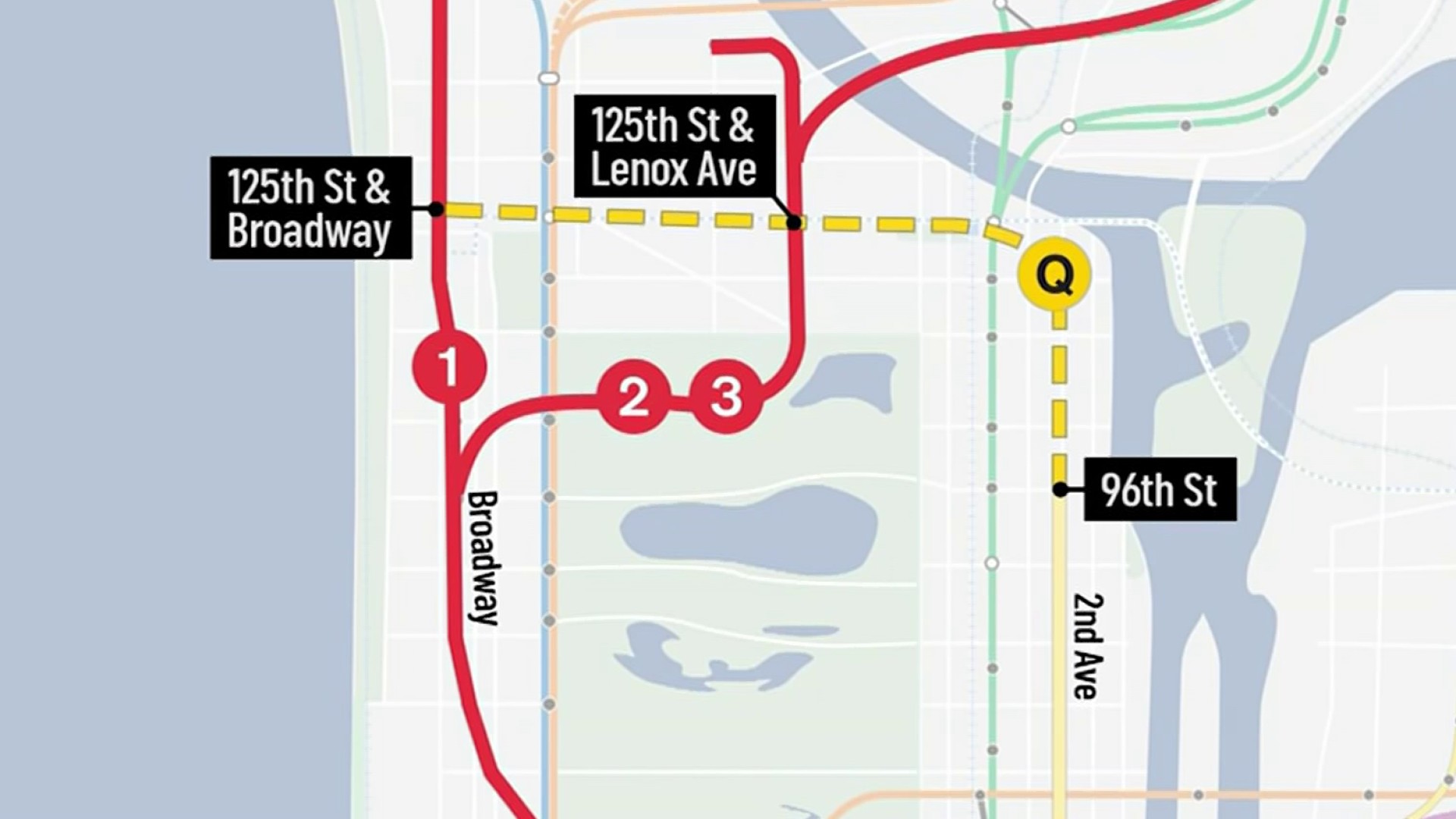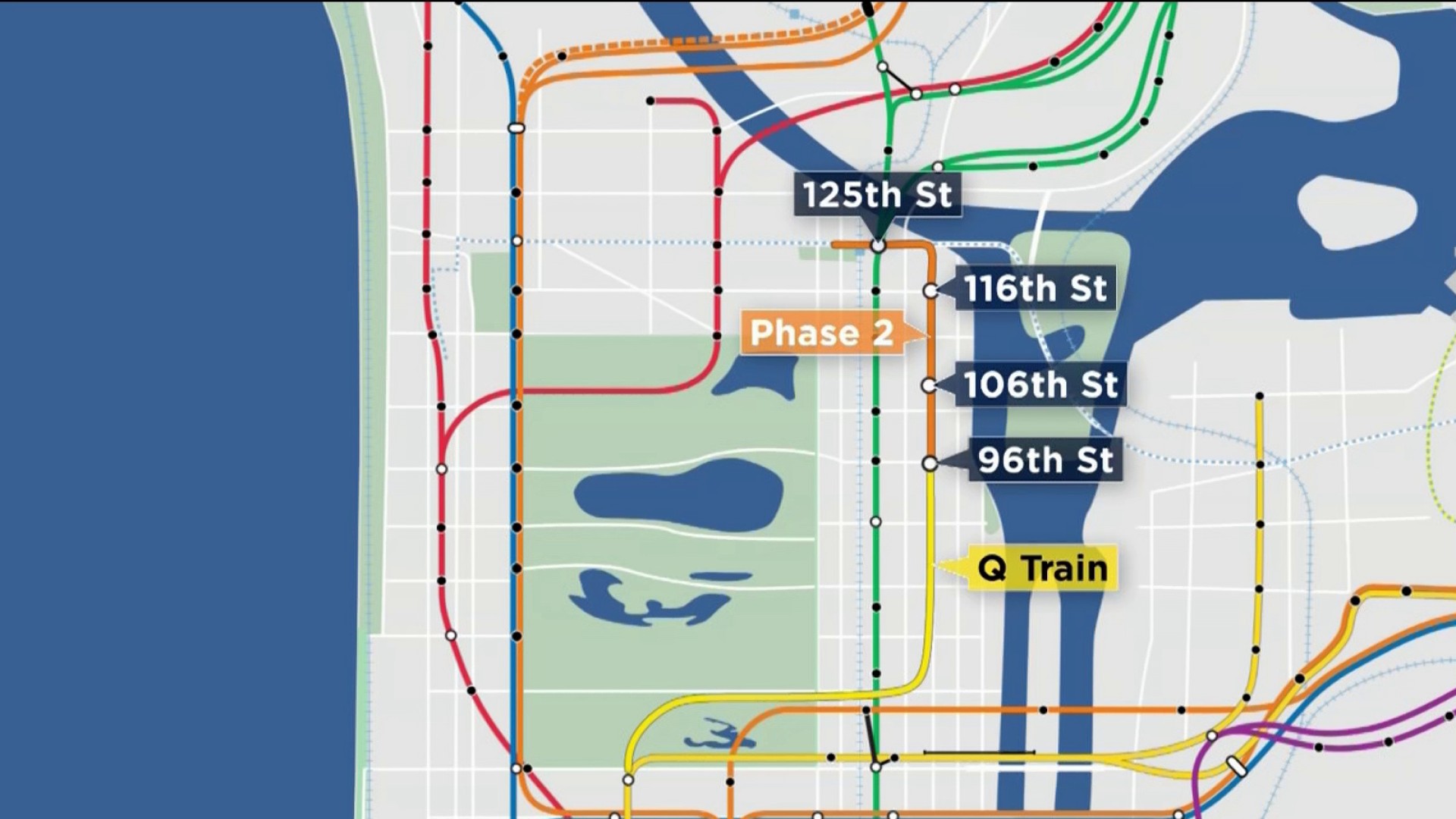What to Know
- Work is set to begin in March for phase two of the MTA's "Second Avenue Extension Project," which would expand subway service in East Harlem
- The project would bring the Q train from 96th Street to 125th Street — and eventually beyond — while adding three new stations at 106th Street, 116th Street and 125th Street.
- The MTA announced that the first of four contracts — a $182 million contract — had been awarded to launch the second phase. While certainly a hefty investment, the MTA found a unique way to save money on the mega-project: The transit authority will be reusing old tunnels from the 1970s
The second phase of the Second Avenue subway extension got a major boost on Monday, with more details announced regarding when construction is slated to start.
The Metropolitan Transportation Authority (MTA) shared that work is set to begin in March for phase two of the "Second Avenue Extension Project," which would expand subway service in East Harlem. The project would bring the Q train from 96th Street to 125th Street — and eventually beyond — while adding three new stations at 106th Street, 116th Street and 125th Street.
The MTA announced that the first of four contracts — a $182 million contract — had been awarded to launch the second phase of the project. While that certainly represents a hefty investment, the MTA found a unique way to save money on the mega-project: The transit authority will be reusing old tunnels from the 1970s that run between 110th and 120th.
Get Tri-state area news and weather forecasts to your inbox. Sign up for NBC New York newsletters.
Being able to repurpose the old tunnels will save $500 million overall, according to the MTA.
"When we built phase 1, we designed it and gave it to a contractor to build what we designed. We’re not doing that this time," said Mark Roche, a project executive with the MTA.
One of the biggest questions when it comes to the deal: funding, along with the added wrinkle of congestion pricing, which has proved to be highly divisive. Roche said they have an idea of how much the project will ultimately cost, but they don't have the money as of now.
"At this stage, $6.9 billion is our estimate for the project, $3.5 (million) of that is coming the feds. The rest is coming from New Yorkers," said Roche. "Right now, we have to wait for that money to be cleared and released, we don’t have it yet."
It was not immediately clear when the next contract is expected to be rewarded. Work on the project isn't expected to wrap up until sometime in the 2030s.
Word of work starting soon comes just over three months after MTA officials said a crosstown subway on 125th Street in Harlem could be on the table, if they can find the funds. The idea is getting attention from top MTA executives, with MTA Capital Construction President Jamie Torres-Springer at the time describing the possible project as a "the potential expansion of Second Avenue subway not to the south but west along 125th Street.“
However, the idea has some pretty big obstacles. The MTA has some expensive and higher priorities — like flood prevention, a problem freshly highlighted in many of the large rainstorms the city has seen over the past few years.
The initial price tag for a 125th Street extension westward would be $7.5 billion dollars.
The MTA is also moving forward with what’s called the interborough express — a $5 billion activation of existing tracks between Bay Ridge, Brooklyn, and Jackson Heights in Queens.
MTA Chairman Janno Lieber said that they should know in the next year or so if the plan to extend this train west is a go.
For now, work on the Second Avenue extension up to 125th Street scheduled to begin in March will involve moving underground utilities in order to make room for what the MTA needs. Transit leaders said moving those utilities first — ahead of station construction — is a lesson learned from the first phase of the project. They said that move alone will reduce costs and potential project delays.



